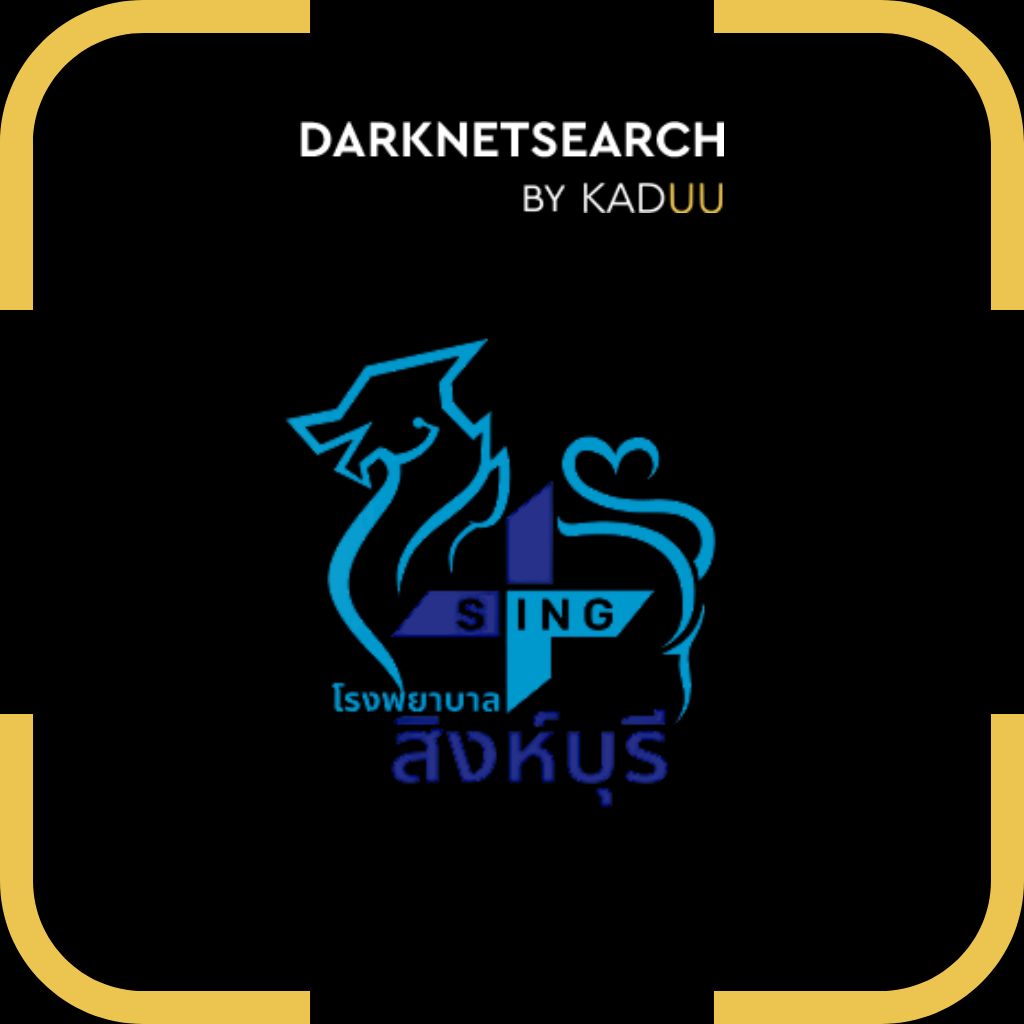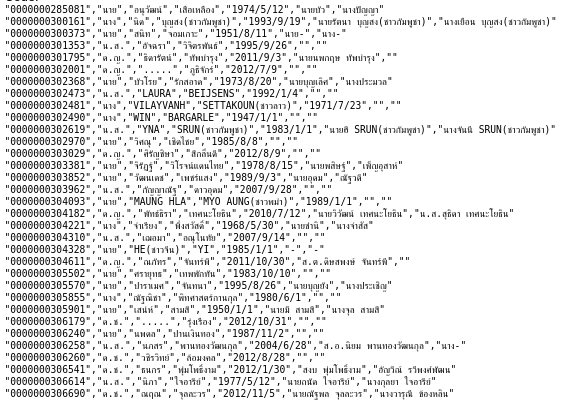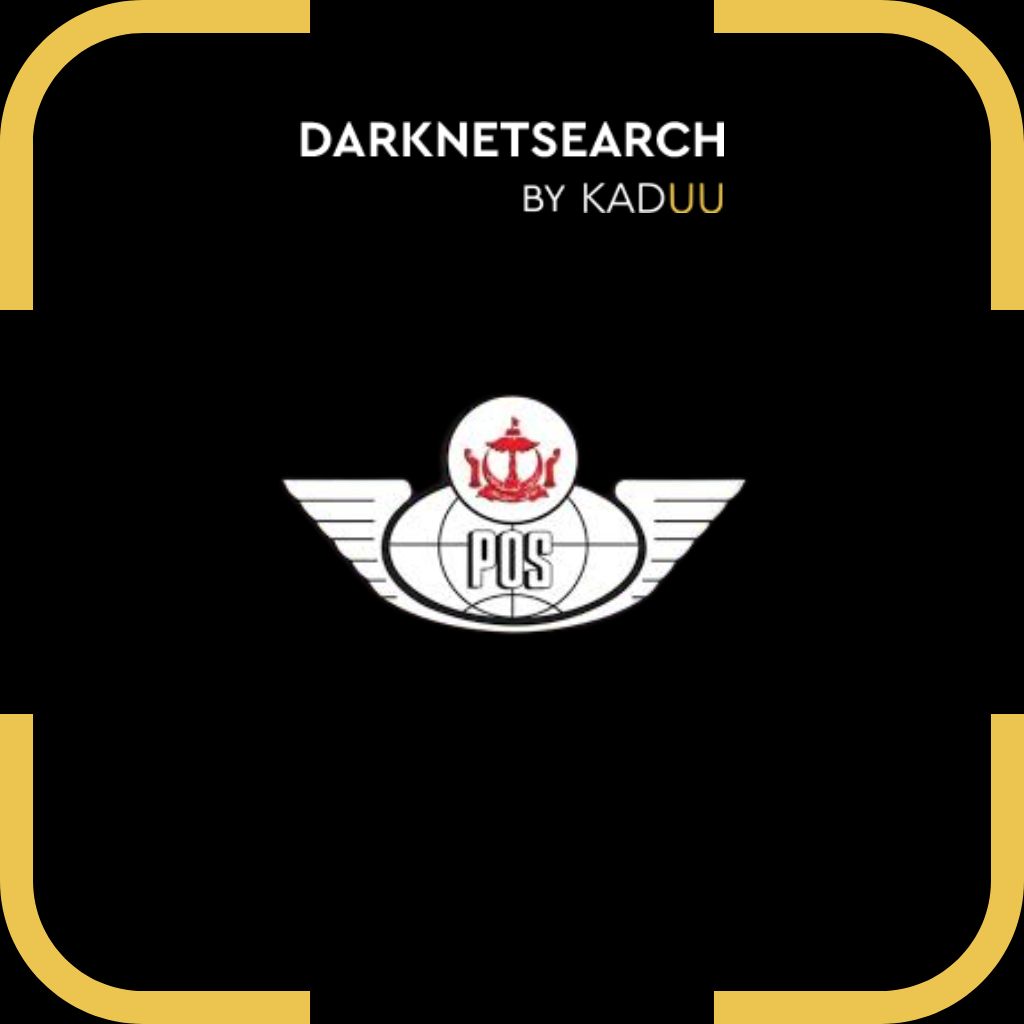Singburi Hospital Data Breach: 5 Urgent Facts Revealed About the 300K Records Leak

➤Summary
The Singburi Hospital data breach has become one of the most alarming cybersecurity incidents in Thailand’s healthcare sector in 2025. On September 25, 2025, a threat actor known as RobotMan posted a leaked database on DarkForums.st, claiming it contained 300,000 personnel records from the hospital’s official domains (singburihosp.moph.go.th / singburihosp.go.th). The compromised information was discovered by the Kaduu team during its routine dark web monitoring, and since then, the news has circulated widely on security trackers and darknet intelligence feeds. 📢
For readers who want to explore how breaches are tracked in real time, DarknetSearch provides updated insights on cyberattacks and darknet activity.
Screenshot Proof from Darknet Forum:
To validate the claims about the Singburi Hospital data breach, researchers shared a capture of the original forum post on DarkForums.st. Below is a designated space where the screenshot can be added for transparency:
📸 [Screenshot of Darknet Forum Post]

Sample Snippet of the Leaked Database:
The leaked CSV file includes structured personnel records. Here is a placeholder where a redacted screenshot of the sample fields should appear, showing the compromised columns without exposing sensitive personal details:
📊 [Screenshot of Database Sample Fields]

What Happened in the Singburi Hospital Leak?
On September 25, 2025, a user named RobotMan uploaded what they described as a personnel database from Singburi Hospital onto the darknet marketplace DarkForums.st. According to reports, the CSV file contained 300K records and weighed 6MB when compressed. Researchers found that the file fields included identifiers such as:
- cid
- pname
- fname
- lname
- birthdate
- father_name
- mother_name
- home_phone
Such details can be exploited for a variety of malicious purposes, from impersonation to spear-phishing. The Kaduu team, which regularly conducts darknet monitoring, confirmed the post’s discovery. This aligns with breach trackers like HackNotice, which flagged the leak and highlighted its severity.
Who Is Behind the Data Breach?
The hacker, using the alias RobotMan, is credited as the author of the breach announcement. While little is known about this actor’s identity, their post on DarkForums.st suggests experience in data leaks and underground dealings. In many cases, actors post such databases either for notoriety, to build reputation in illicit communities, or as part of larger extortion campaigns.
As of now, there is no official confirmation from Singburi Hospital or Thailand’s Ministry of Public Health acknowledging the breach. However, multiple cyber-intelligence firms have logged the leak, increasing the likelihood that the data is authentic.
What Data Was Compromised?
Healthcare staff records are particularly valuable in the criminal ecosystem. In this case, the compromised information includes:
- Full names (first and last)
- Date of birth 🎂
- Family references (father’s and mother’s names)
- Contact numbers (home phone)
- Civil identifiers
While the dataset does not appear to include patient health records, the exposure of staff data is nonetheless serious. Attackers can combine birthdates, family details, and phone numbers to carry out identity fraud, targeted phishing, and social engineering attacks.
Risks of the Singburi Hospital Data Breach
The risks linked to this incident extend beyond the hospital’s internal environment. Here are the most pressing consequences:
- Identity Theft – Criminals can exploit names, birthdates, and family details for fraudulent registrations.
- Phishing Campaigns – With accurate personal data, phishing emails or phone scams become more convincing.
- Reputation Damage – As a government hospital, Singburi faces potential loss of trust among staff and the public.
- Operational Disruption – Staff morale and internal workflows may be disrupted if personnel fear ongoing exposure.
- Regulatory Impact – Depending on Thai data protection laws, the hospital may face fines or investigations. 🚨
How Did the Database Leak?
The exact vector of compromise has not yet been confirmed. However, common attack methods in healthcare breaches include:
- Exploited vulnerabilities in outdated hospital IT systems
- Phishing attacks against staff credentials
- Misconfigured databases exposed to the internet 🌐
- Insider threats or stolen access credentials
Without an official statement from Singburi Hospital, the root cause remains speculative.
Expert Insights on Healthcare Breaches
Cybersecurity experts often warn that healthcare institutions are prime targets due to the combination of outdated IT systems and highly valuable personal data. According to IBM’s “Cost of a Data Breach” report, healthcare data breaches have the highest average cost per record compared to other industries. One security analyst commented:
“Even when patient records are not exposed, staff data can be just as dangerous in the wrong hands. It provides a stepping stone for targeted attacks on hospital infrastructure.”
Practical Tips for Staff Affected
If you are part of the Singburi Hospital personnel, consider the following checklist:
✔️ Be cautious with unsolicited emails or calls asking for sensitive information
✔️ Verify suspicious requests through official hospital channels
✔️ Enable two-factor authentication on all accounts where possible
✔️ Monitor bank accounts and credit records for unusual activity
✔️ Consider enrolling in identity theft protection services
Question: Is My Data Safe After the Singburi Hospital Breach?
If you are a staff member, there is a possibility your personal information was part of the leaked 300K records. Since the hospital has not released an official list of affected individuals, the safest assumption is to act as though your data may be exposed and follow protective measures immediately. For real-time updates on similar darknet leaks, visit DarknetSearch’s dark web monitoring tools, where darknet monitoring is applied to track new exposures daily.
Why This Matters Beyond Singburi Hospital
The Singburi Hospital data breach is not just a local incident. It highlights a global pattern where healthcare institutions are repeatedly targeted because of poor cybersecurity funding and outdated infrastructure. 🌍 Related breaches have occurred across Asia, Europe, and North America, showing that healthcare systems worldwide must take proactive measures to safeguard employee and patient data.
For more insights on related incidents, you can explore DarknetSearch, which regularly publishes breach reports and guides on dark web monitoring.
The Role of Monitoring Teams
The discovery of the Singburi breach by the Kaduu team demonstrates the importance of continuous darknet surveillance. Without such monitoring, hospitals and employees might remain unaware of breaches until the data is misused. Proactive intelligence allows organizations to respond faster, notify affected staff, and reduce harm.
Conclusion
The Singburi Hospital data breach underscores how critical it is for healthcare institutions to strengthen cybersecurity defenses. With 300,000 staff records potentially compromised, the risk of identity theft, phishing, and reputational damage is real. While the hospital has not yet released an official confirmation, evidence from multiple cybersecurity monitoring sources makes this incident credible.
👉 If you are connected to Singburi Hospital, take precautionary steps now to secure your data. For organizations, this breach should serve as a wake-up call to invest in robust security measures before sensitive data ends up for sale on the darknet.
Discover much more in our complete guide
Request a demo NOW
Your data might already be exposed. Most companies find out too late. Let ’s change that. Trusted by 100+ security teams.
🚀Ask for a demo NOW →Q: What is dark web monitoring?
A: Dark web monitoring is the process of tracking your organization’s data on hidden networks to detect leaked or stolen information such as passwords, credentials, or sensitive files shared by cybercriminals.
Q: How does dark web monitoring work?
A: Dark web monitoring works by scanning hidden sites and forums in real time to detect mentions of your data, credentials, or company information before cybercriminals can exploit them.
Q: Why use dark web monitoring?
A: Because it alerts you early when your data appears on the dark web, helping prevent breaches, fraud, and reputational damage before they escalate.
Q: Who needs dark web monitoring services?
A: MSSP and any organization that handles sensitive data, valuable assets, or customer information from small businesses to large enterprises benefits from dark web monitoring.
Q: What does it mean if your information is on the dark web?
A: It means your personal or company data has been exposed or stolen and could be used for fraud, identity theft, or unauthorized access immediate action is needed to protect yourselfsssss.


